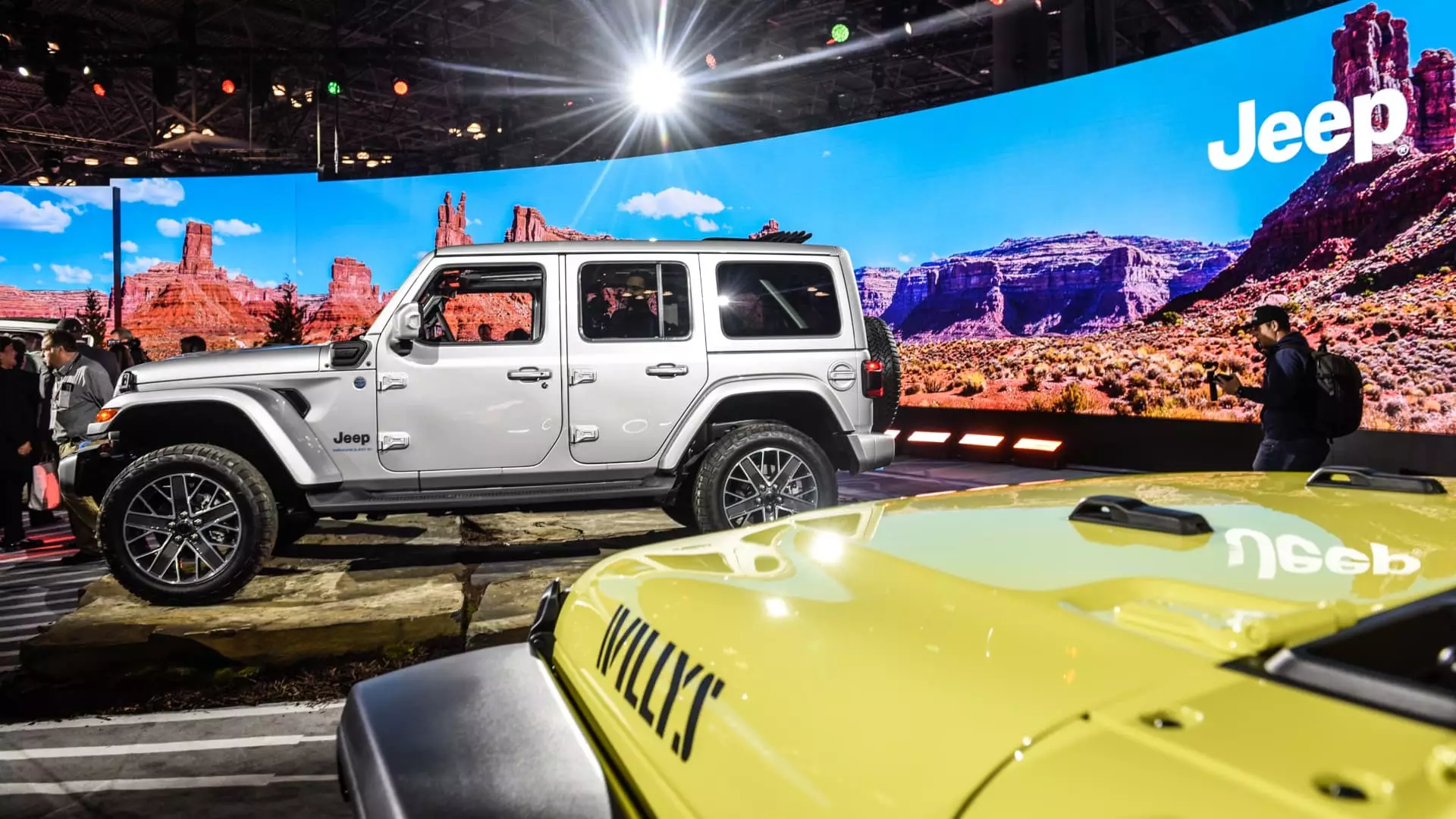Jeep is strategically aiming to increase U.S. sales of its plug-in hybrid electric vehicles by up to 50% this year, positioning itself as a key player in the transition from traditional gas-guzzling SUVs to all-electric models. This move comes amidst a slower-than-expected adoption of electric vehicles in the market. The brand’s CEO, Antonio Filosa, revealed plans to sell 160,000 to 170,000 plug-in hybrid electric vehicles in the U.S. in 2023, reflecting a substantial 40% to 50% growth compared to the previous year. This expansion aligns with the debut of Jeep’s first all-electric SUV, the Wagoneer S, signaling a pivotal moment for the iconic brand as it explores new avenues for growth and innovation in the automotive industry.
Plug-in hybrid electric vehicles (PHEVs) serve as a transitional technology that combines the benefits of internal combustion engines with electric vehicle technologies, offering consumers a flexible alternative to fully electric models. By leveraging PHEVs to bridge the gap between traditional and electric vehicles, Jeep anticipates accelerating consumer adoption and broadening its market appeal. With projected PHEV sales exceeding Stellantis’ total 2023 U.S. sales of such vehicles, Jeep is poised to outperform industry estimates for segment growth, showcasing a strategic shift towards sustainable mobility solutions. The brand’s emphasis on offering a “freedom of choice” highlights its commitment to providing versatile options that cater to diverse consumer preferences and driving needs.
Jeep’s foray into plug-in hybrid electric vehicles represents a proactive response to evolving regulatory standards and consumer demand for eco-friendly transportation solutions. The brand’s upcoming lineup of electrified vehicles includes the Wagoneer S EV, the Wrangler-inspired Recon EV, and a successor to the discontinued Cherokee midsize SUV, set to debut in the coming months. Furthermore, Jeep plans to introduce new plug-in “range-extender” models for its Wagoneer and Grand Wagoneer large SUVs by 2025, underscoring its long-term commitment to sustainability and technological advancement. By strategically diversifying its product portfolio, Jeep aims to capture a larger market share and position itself as a leader in the electric vehicle segment.
In addition to plug-in hybrid electric vehicles, Jeep is evaluating the potential introduction of traditional hybrid models to its U.S. lineup, complementing its existing electrified offerings. Traditional hybrids, such as the Toyota Prius, feature a combination of internal combustion engines and electric components to enhance fuel efficiency and reduce emissions. Stellantis’ Chief Technology Officer, Ned Curic, emphasized the importance of striking a balance between electric, plug-in hybrid, and internal combustion engine vehicles to cater to varying consumer preferences and market dynamics. The company’s comprehensive approach to hybrid technology reflects its commitment to embracing innovation while addressing the evolving needs of today’s discerning consumers.
Stellantis is set to introduce “range-extender electric vehicle” models (REEVs), a unique category that blends electric and internal combustion engine technologies to offer enhanced driving range and versatility. The upcoming Ram Ramcharger full-size pickup truck is poised to be the first REEV vehicle from Stellantis, featuring an electric onboard generator powered by a 3.6-liter V6 engine. This innovative concept enables REEVs to operate as zero-emissions electric vehicles until the battery depletes, at which point the internal combustion engine seamlessly transitions to sustain vehicle propulsion. With the potential to revolutionize the electric vehicle landscape, REEVs represent a promising solution for consumers seeking an optimal balance between sustainability and performance.
Jeep’s strategic focus on plug-in hybrid electric vehicles underscores its commitment to spearheading innovation and sustainability in the automotive industry. By expanding its electrified product portfolio, embracing hybrid technologies, and introducing cutting-edge concepts like range-extender electric vehicles, Jeep is poised to redefine the future of mobility and set new standards for eco-conscious driving. As the automotive landscape continues to evolve, Jeep’s proactive approach towards electrification signals a bold vision for a greener, more sustainable future.

